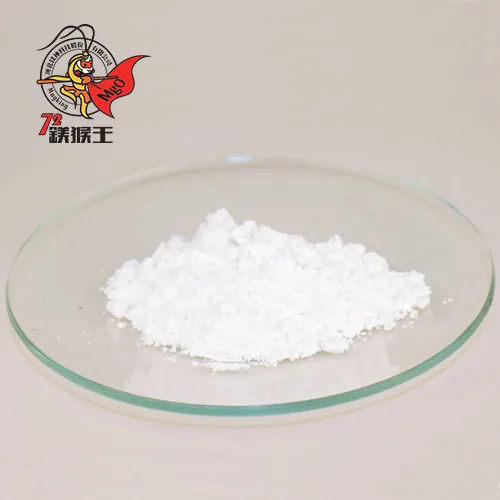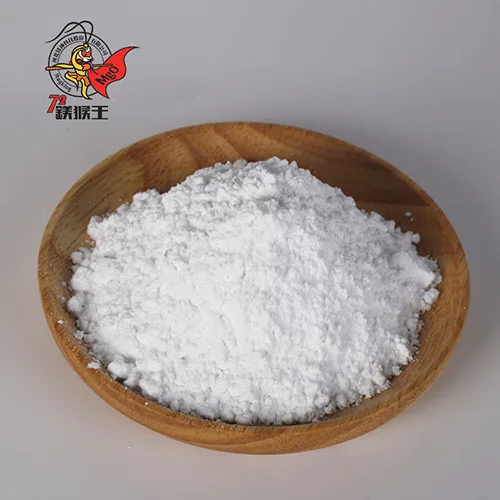Magnesium is an essential mineral that plays a crucial role in various physiological functions within the human body. As one of the primary sources of magnesium, magnesium oxide is widely used for its health benefits, including supporting bone health, cardiovascular function, nerve and muscle activity, and digestive health. In this blog, we will explore the various roles of magnesium oxide in the body, how it contributes to overall well-being, and its applications in the health industry.
Role of Magnesium Oxide in the Body
Magnesium Supplementation
Magnesium deficiency is a common issue, affecting millions of people worldwide. Since magnesium oxide contains a high percentage of elemental magnesium, it is often used as a supplement to help meet daily magnesium requirements. Proper magnesium levels are essential for energy production, enzyme function, and overall metabolic balance.

Bone Health
Magnesium is integral to calcium metabolism, which is essential for strong and healthy bones. It aids in calcium absorption and bone mineralization, reducing the risk of osteoporosis and bone fractures. Studies suggest that adequate magnesium intake contributes to higher bone density and helps prevent age-related bone deterioration.
Cardiovascular Health
Magnesium oxide plays a significant role in maintaining heart health by regulating blood pressure, stabilizing heart rhythms, and improving blood lipid profiles.
Blood Pressure Regulation
Magnesium helps relax blood vessels, which may lead to lower blood pressure. Clinical studies have shown that adequate magnesium intake can support normal blood pressure levels, reducing the risk of hypertension and related complications such as stroke and heart disease.
Antiarrhythmic Effect
Magnesium is involved in stabilizing heart rhythm, and a deficiency can lead to irregular heartbeats or arrhythmias. Magnesium oxide supplementation may help reduce the risk of arrhythmias and improve heart function by supporting proper electrical conduction in the heart muscle.
Improve Blood Lipids
Magnesium has been linked to better cholesterol management. It can help lower LDL (bad cholesterol) levels while promoting higher HDL (good cholesterol) levels. This, in turn, reduces the risk of atherosclerosis and cardiovascular disease.
Nerve and Muscle Function
Magnesium is essential for neuromuscular function, supporting muscle relaxation and nerve signal transmission.
Relieve Muscle Spasms
Magnesium oxide may help alleviate muscle cramps and spasms by promoting relaxation of muscle fibers. Athletes and individuals prone to leg cramps often use magnesium supplements to reduce discomfort and improve muscle recovery.
Calm the Nervous System
Magnesium is known for its calming effects on the nervous system. It helps regulate neurotransmitters, reducing stress, anxiety, and sleep disturbances. Adequate magnesium levels are essential for mental well-being and cognitive function.
Digestive System
Magnesium oxide is widely used in digestive health due to its dual function as an antacid and a laxative.
Antacid Effect
Magnesium oxide can neutralize excess stomach acid, providing relief from heartburn, acid reflux, and indigestion. It is commonly used in over-the-counter antacid medications to support digestive comfort.
Catharsis Effect
Magnesium has a natural laxative effect, helping to relieve occasional constipation. Magnesium oxide draws water into the intestines, softening stools and promoting bowel movements. It is often recommended for individuals with constipation-related issues.
Blood Sugar Regulation
Magnesium plays a role in glucose metabolism and insulin function. Studies indicate that higher magnesium intake is associated with improved insulin sensitivity and lower blood sugar levels. Magnesium oxide supplementation may be beneficial for individuals managing diabetes or those at risk of developing type 2 diabetes.
Magnesium Oxide Manufacturers
Hebei Meishen Technology Co., Ltd. is a high-tech enterprise focusing on deep processing of magnesium compounds and integrating R&D, production and sales. We can produce high-end special magnesium products such as medicine, food, silicon steel grades, etc.; we can also customize various special magnesium products according to the needs of different industries and different customers.
Conclusion
Magnesium oxide is a valuable source of magnesium, offering a wide range of health benefits. From supporting bone and cardiovascular health to aiding in muscle relaxation, nerve function, and digestion, this essential mineral plays a crucial role in overall well-being. Whether used as a supplement, antacid, or laxative, magnesium oxide is a vital component of a balanced health regimen. Choosing a reputable manufacturer ensures optimal quality and effectiveness.
FAQs
Is magnesium oxide better than other forms of magnesium?
Magnesium oxide contains a high percentage of elemental magnesium, but it has lower bioavailability compared to other forms like magnesium citrate. However, it is highly effective for digestive health and as a magnesium supplement when taken in appropriate doses.
Can magnesium oxide help with sleep problems?
Yes, magnesium oxide may promote relaxation and improve sleep quality by calming the nervous system and regulating neurotransmitters that influence sleep cycles.
How much magnesium oxide should I take daily?
The recommended daily intake of magnesium varies by age and gender. For adults, the general guideline is 310-420 mg per day. However, it is best to consult a healthcare professional for personalized dosage recommendations.


